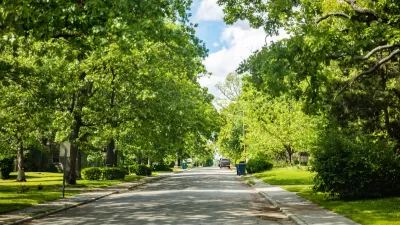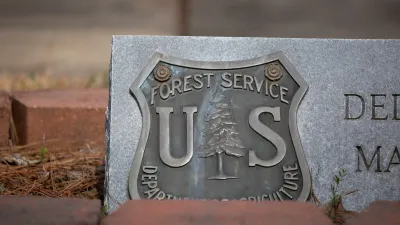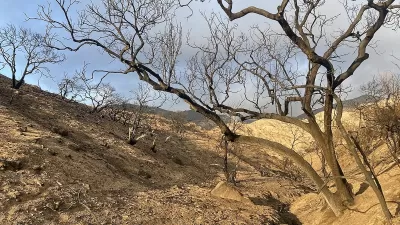The Oakland City Council has adopted its first Urban Forest Plan, a 50-year roadmap focused on equitable tree care, canopy preservation, and environmental justice to benefit underserved communities.

The Oakland City Council has unanimously approved the city’s first Urban Forest Plan, marking a historic commitment to the care, maintenance, and equitable growth of Oakland’s urban forest. The Plan, a 50-year roadmap, aims to preserve the city’s 68,000 public trees, increase tree canopy coverage, and address disparities in tree distribution. Developed with significant community input, the Plan aligns with Oakland’s Equitable Climate Action Plan and General Plan, emphasizing the importance of environmental justice. Key initiatives include tree maintenance, planting in underserved communities, updating ordinances, and fostering public-private partnerships to create green jobs and educational opportunities.
Oakland’s tree canopy, although more expansive than in many neighboring cities, has been declining and is unequally distributed, with frontline communities disproportionately affected. To address this, the Plan prioritizes tree planting in areas burdened by pollution, identified through CalEnviroScreen, and establishes an implementation team to secure funding and oversee its execution. A $1 million CAL FIRE grant supported the Plan’s creation, which included a Tree Canopy and Landcover Assessment, public engagement, and the planting of 700 trees in underserved neighborhoods. Nearly 2,500 residents contributed feedback to shape the Plan’s equitable vision.
With $8 million in USDA Forest Service funding secured through the Inflation Reduction Act, Oakland is set to implement key elements of the Plan over the next four years, including tree pruning and planting in priority areas. Public Works Director Josh Rowan highlighted the urgency of resuming proactive tree care, halted since the 2008 recession, to ensure cost-effective and sustainable urban forest management. The Plan not only addresses immediate environmental concerns but also positions Oakland to pursue additional funding opportunities for long-term ecological and public health benefits.
FULL STORY: Oakland City Council Unanimously Adopts the City’s First Urban Forest Plan

Planetizen Federal Action Tracker
A weekly monitor of how Trump’s orders and actions are impacting planners and planning in America.

Map: Where Senate Republicans Want to Sell Your Public Lands
For public land advocates, the Senate Republicans’ proposal to sell millions of acres of public land in the West is “the biggest fight of their careers.”

Restaurant Patios Were a Pandemic Win — Why Were They so Hard to Keep?
Social distancing requirements and changes in travel patterns prompted cities to pilot new uses for street and sidewalk space. Then it got complicated.

Platform Pilsner: Vancouver Transit Agency Releases... a Beer?
TransLink will receive a portion of every sale of the four-pack.

Toronto Weighs Cheaper Transit, Parking Hikes for Major Events
Special event rates would take effect during large festivals, sports games and concerts to ‘discourage driving, manage congestion and free up space for transit.”

Berlin to Consider Car-Free Zone Larger Than Manhattan
The area bound by the 22-mile Ringbahn would still allow 12 uses of a private automobile per year per person, and several other exemptions.
Urban Design for Planners 1: Software Tools
This six-course series explores essential urban design concepts using open source software and equips planners with the tools they need to participate fully in the urban design process.
Planning for Universal Design
Learn the tools for implementing Universal Design in planning regulations.
Heyer Gruel & Associates PA
JM Goldson LLC
Custer County Colorado
City of Camden Redevelopment Agency
City of Astoria
Transportation Research & Education Center (TREC) at Portland State University
Camden Redevelopment Agency
City of Claremont
Municipality of Princeton (NJ)





























